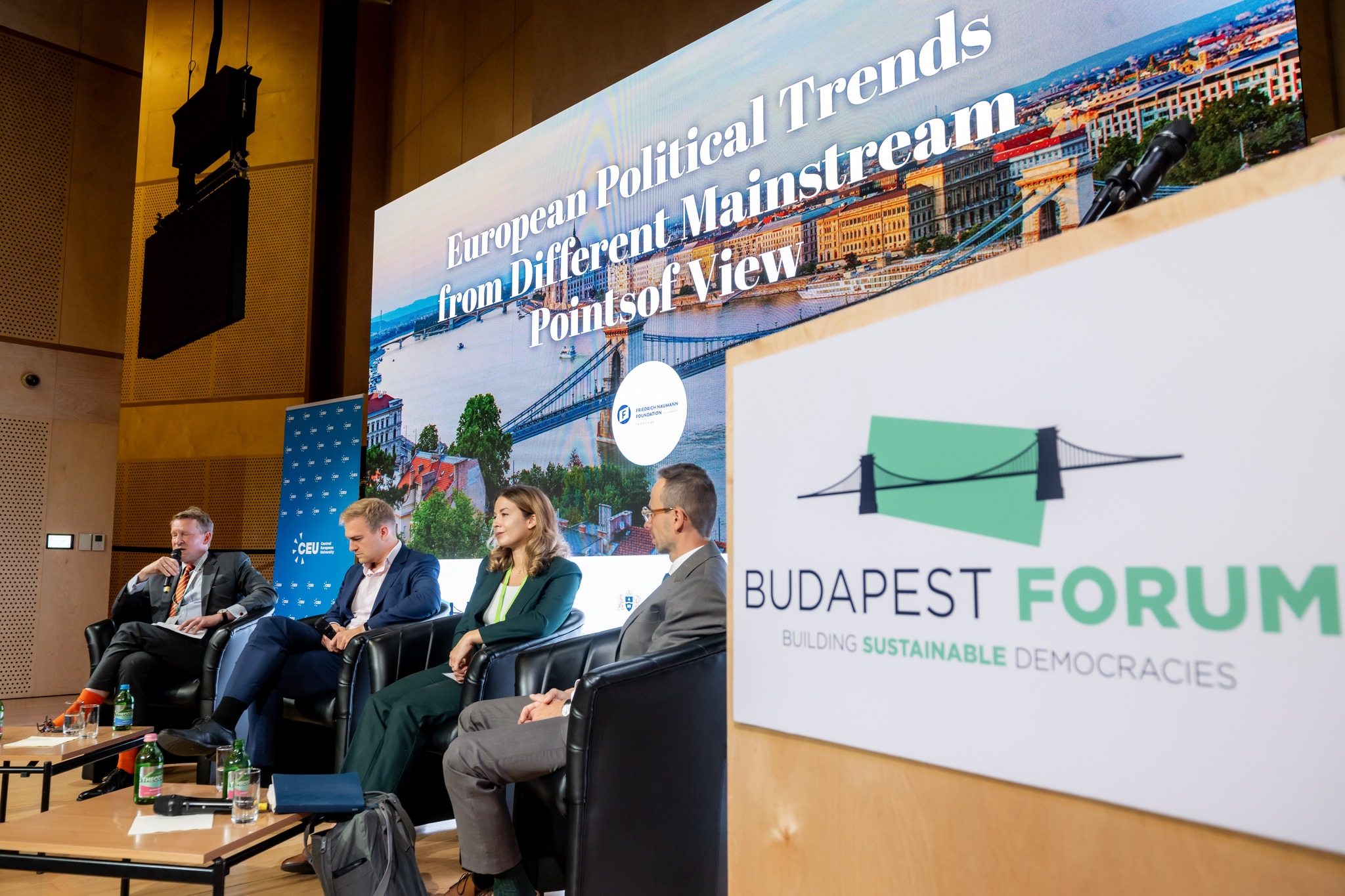European political trends from different mainstream points of view
2025-09-24
Panel summary: ‘European political trends from different mainstream points of view’ at Budapest Forum 2025.
Participants
Alexander Ackerl – Member of SPÖ, and the Vienna City Council
Katalin Cseh – Member of the Hungarian Parliament
Pawel Zerka – Senior policy fellow, European Council on Foreign Relations
Moderator: Lars-André Richter – Director, Friedrich Naumann Foundation, Prague

Main takeaways
- The democratic transition which followed the fall of the Iron Curtain has failed to meet many expectations. Important issues like climate change, gender equality, and EU strengthening still remain unresolved even 30 years later. In Hungary specifically, democracy and integration with Western values were promised and they are yet to be fulfilled, while citizens still have to fight for basic freedoms.
- While the quality of life has improved significantly in countries like Poland since 1989, with EU and NATO membership representing major achievements, political stability is still not steady.
- Capitalism is experiencing another cyclical crisis with growing concentration of wealth and power among few individuals and corporations. This phenomenon has extended into politics, money now heavily influences political discourse and electoral outcomes. This trend is especially visible in the example of the US, where it began with Reagan and Thatcher intensified it, making democratic governance more challenging.
- The rise of smartphones and social media platforms has fundamentally transformed political communication. These devices are game-changers, functioning as “small propaganda machines” that people carry constantly, consuming manipulated information designed specifically to increase polarization. Social media’s rise matches with the increase of right-wing populism across Western democracies. Politicians tend to veer to the right because it’s electorally dangerous to come up and defend certain values.
- The traditional left-right political spectrum, with socialism against capitalism, has been replaced by a new divide between liberals, democrats and autocrats. Since the political energy is now focused on defending basic democratic principles rather than policy debates, it's difficult to address underlying economic conflicts.
- The debate about where mainstream politicians should stress self-criticism to show empathy with voters’ concerns or project strong self-confidence is still very much ongoing. For voters who seek leadership, being self-assured and projecting certainty is inherently attractive, this is how right-wing populists currently can dominate.
- People increasingly experience the lack of control they have over their lives, coming down to as basic services as social housing getting privatized and commodified. Even personal information has become a commodity through social media interactions. This sense of powerlessness extends to the feeling that extremely wealthy individuals like Elon Musk can independently shape public discourse and policy.
- Despite political shifts toward the far–right, the majority of the European public opinion shows strong and increasing attachments to the EU. However, this pro-European sentiment is paired with significant disappointment and anger at mainstream politicians who fail to defend core values, particularly on issues like migration policy.
- Traditional political parties struggle to balance between maintaining distinct ideologies and forming broad coalitions to keep extremist parties from power. While these coalitions might be necessary for governance, they are taking the risk of fading political differences and appearing to voters as self-serving career politicians without clear values.
- Donald Trump’s presidency provides Europe with both a cultural war challenge and an opportunity to define its values more clearly. Trump, while humiliating Europe, also supports ideological allies across European countries and forces European leaders to either demonstrate seriousness as global actors or risk marginalization.
- The fundamental problem of political leadership looks beyond communication, many politicians lack passionate commitment to clear visions for the future, instead they offer technical solutions and gradual changes to complex problems that would require excellent leadership and emotional connection with the voters.
- Social media platforms are actively testing democracy and society without proper laboratory testing. Regulatory approaches are currently insufficient to address the clear negative impacts on political discourse and democratic participation.
This panel discussion was co-organized with the Friedrich Naumann Foundation.
Explore all the panel discussions from Budapest Forum 2025 here.
Copyright 2026. Political Capital Policy Research and Consulting Institute, all rights reserved.

